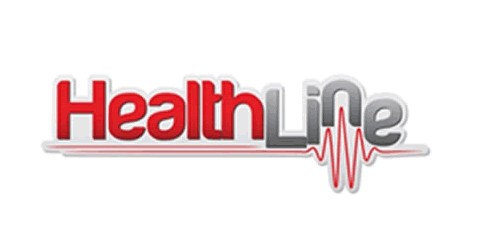– new segments added for comprehensive health education
Season 10 of Vodafone Healthline, a flagship corporate social investment project of the telecom giant, has been released with more exciting and educative segments. The new season, which started showing over the weekend, provide comprehensive healthcare and safety information for the public while sharing stories of beneficiaries.
The first of the 13-episode series, which aired over the weekend, saw viewers’ favourite health practitioners, Dr. Aba Folson and Dr. Kwekuma Yalley, on the show. Together with the indefatigable host, Frema Asiedu, they delved into the usual fascinating ‘myth-busters’ segment, which discussed the notion of chocolate as an aphrodisiac.
Dr. Aba Folson, a cardiologist, described an aphrodisiac as a substance taken to enhance sexual pleasure or to stimulate one’s desire for sexual pleasure. She debunked the claim that chocolate enhances sexual pleasure, especially among men, explaining that it contains certain chemicals that help to calm the body because it’s made of cocoa, which is why people believe it to be an aphrodisiac.
Dr. Kwekuma Yalley, a general health practitioner, indicated that chocolate, though very nutritious, contains chemicals like serotonin that create a feel-good effect, but cannot provide the instantaneous reaction required to classify it as a sexual enhancer.
In one of the newly added segments, Dr. James Aggrey Orleans, Trauma Surgeon, touches on ways to handle accident victims with practical demonstrations. He reiterated that accidents are bound to happen, but citizens need to know how to handle victims in order not to worsen the situation.
He added that there have been several cases in the past when people lost their lives or even became paralysed after accidents because of the way they were handled.
“There is a chain that starts from the time an accident occurs until a qualified health professional attends to the victim. We have the first-hand respondents to the accident scene who try to help, and then those who transport the victim to a health facility using an ambulance or private vehicle. ”
Adding a practical scenario, he explained the approach to handling victims, mentioning safety as the first point of consideration (wearing of facemasks and gloves), followed by communication, after which one must consider triage (sorting based on most injured) before first-aid application (knowing what to do with the right equipment), and finally transport the patient to a hospital.
In the second newly added feature, a fitness exercise segment with Afia Berfi, a fitness coach, gave live workout lessons that viewers could perform in their homes to keep fit.
In other new segments, Dr. Kwekuma Yalley gave a medical history of a surgeon who successfully conducted a self-operation, and Freda Asiedu took over “Jewels in the Kitchen” to provide nutritional advice on the best foods to eat for various ailments.
In a brief review of the 10-year journey, the first episode sought to provide some insight into how earlier beneficiaries are coping with life after a critical intervention from Vodafone, some guardians and individual recipients shared their intriguing stories.
Grace Ameyaw’s father, one of the early beneficiaries in 2010, narrated his ordeal of receiving a call from a basic school teacher informing him that his ward was seriously ill and needed medical attention. He mentioned that when his daughter was diagnosed with cancer at Korle-Bu hospital, he had no hope of raising the amount of money required and went to a TV station for help. But fortunately for them, Vodafone heard about the situation and reached out to them-a situation he described as unbelievable if not for divine grace.
Michael Aklotso, a footballer, also narrated how Vodafone reached out to him when all hope was lost and catered for almost everything – medical bills, transportation, and food throughout his treatment period in 2012.
He also debunked the notion that Vodafone Healthline is all about ‘whom you know’ and encouraged everyone to call Healthline for help.










